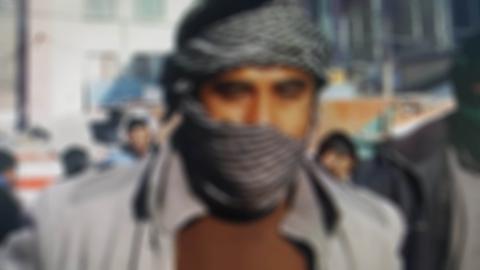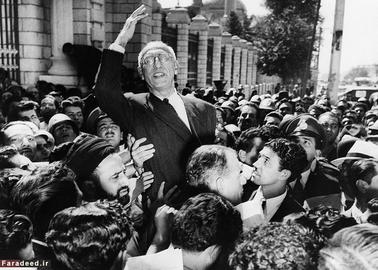Twenty-two-year-old Safar Ali had been missing for two months. There was no sign of him anywhere. He was no longer up to mischief while his mother urged him to propose to the girl in their neighborhood that he loved, nor was he up to usual his late homecomings, despite his dad’s insistence that he avoid roaming the volatile southern Ghazni Province that was penetrated by Taliban insurgents.
The longer he was absent, the more his elderly father and ill mother worried. Had the Taliban abducted him for being a Shia? Had he been caught up in one of the bomb blasts and admitted to hospital? Or, like thousands of Afghan citizens, had he headed to the sea to risk the journey to Europe, in order to find a better life?
Alireza, Safar’s older brother and co-worker, was the only one who could guess or speculate about the whereabouts of his brother.
“I was really scared,” he said. “I called everyone. I telephoned [the] Andar and Moqor District elders to ask for help to talk to the Taliban and see if they’ve taken a poor Hazara boy. The answers were always negative. We visited several hospitals and searched among the casualties, but there was no news of Safar.”
Safar and Alireza, with only a one-year age gap between them, were the only two sons of a large, poor eight-member family residing in Ghazni. In order to feed the family, they used to work as porters in the city, and if they could get a better deal, they would go to work in the capital Kabul.
“It was impossible. Taliban groups in Ghazni assured us that they have not killed or taken anyone with Safar’s specifications either. My dad said he might have gone to Iran,” Alireza recalled.
Unemployment, poverty and uncertainty about their futures forced them to do the jobs they didn’t enjoy, where they made roughly Afs 100 (about US$1.50) a day.
For two months Safar’s family called friends and relatives in Iran, and finally they received some shocking news.
Safar had actually immigrated and had gone to Iran, from where he was sent to Syria.
“It was reported that my brother was martyred. They told us to go and collect his body. I said, ‘Martyred? What martyrdom? What war is in Iran that killed Safar?’ I could not believe [that] my brother [had travelled through] several countries to arrive in Syria,” Alireza said.
While Safar had been going to Kabul unwillingly, he had suddenly enlisted to go to Syria from Kabul.
Afghanistan has a population of about six million Shia Muslims. Strong religious adherence and joblessness are the two major elements pushing some youth into joining the paramilitary brigade Fatemiyoun. Fatemiyoun was formed by General Ghasem Suleimani, the commander of the Quds Forces of the Revolutionary Guards, and is under the direct supervision of Ayatollah Ali Khamenei, the Iranian leader.
Iran educates thousands of Afghan Shia clerics in religious centers in Qom, Mashhad and Isfahan and sends them to Afghanistan to preach. According to Ahmad Mohammadifar, the head of the foreign nationals unit at the Iranian Ministry of Interior, over 15,000 Afghan clerics study in Iranian religious centers. A staunch supporter of Iranian regional policies, the clerics act as an important bridge between the Afghan Shia youth and the Islamic Republic of Iran.
Safar went to Iran with “help of some brothers,” hoping to find a job under the “guidance” of one of these clerics. There he was quickly trained before being dispatched to Syria.
His brother recalled: “Our relatives in Iran asked my father to allow [them to] bury my brother in Iran. There was nobody to pay for my brother being kept in the morgue, and the pressure from our relatives was mounting. Finally my father agreed. My parents went to Iran to attend the funeral.”
Little is know about Safar’s recruitment in Afghanistan or how he came to fight in Syria’s war. It is not known who that “guide” was, and who those “brothers” are.
The Afghan government has a warm relationship with the Iranian and Arab governments, but strongly opposes sending its youth to fight in this proxy war.
A Shia Hazara leader, Mohammad Mohaqeq, recently praised the Fatemiyoun Brigade and General Ghasem Suleimani for fighting against ISIS in Syria. There are reports that, as a result, he was barred from attending the national security council meeting in Afghanistan.
The Afghan National Directorate for Security takes action against those individuals or organizations that encourage or recruit the Afghan youth to fight in the Syrian war, and thus much of this activity takes place secretly.
Once Safar’s parents landed in Iran, they were granted residence and accommodation. A monthly salary of one million toman (about US$235) was also allocated to the parents of the “shrine martyr.”
But Alireza says the pain of losing a son was too great for his father. Soon after, he had a heart attack and died, leaving his wife and young daughter alone in Iran.
Alireza continues to do his job as a porter in the absence of Safar. He will never forget his brother. “I am not happy. I am unhappy that he made himself a martyr. If martyrdom was important, we have many places here to die. Life got bitter and darker after him. Who sent him and what happened to him is a mystery. We had to pay a price for being Shia. My father died. We were devastated when we heard Safar’s news. We lost our economy. We lost our mind.”

























comments